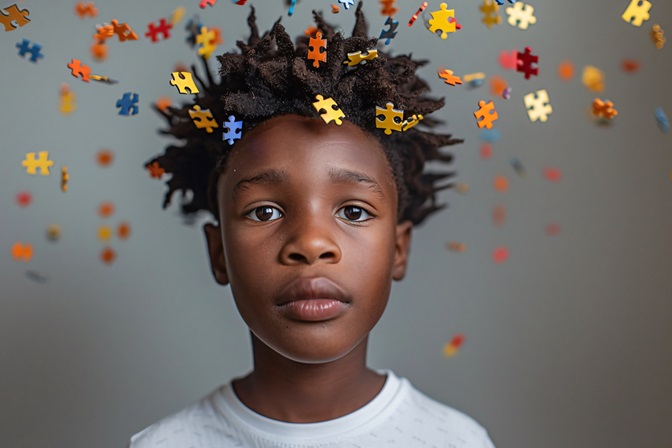What Games Improve Memory
Our memory shapes our identity, helps us navigate daily life, builds meaningful relationships, and provides individuals with a foundation to understand the present and the future. It helps us teach and learn, improving the quality of our lives. Games can be fun and enhance an individual’s cognitive functions at any age.
The strategic elements of the games improve planning and problem-solving, teaching attention to detail and critical thinking. Some of them we play since we are little kids, while others we learn as we grow older. Here’s a list of eight memory-boosting games.
How Memory Works?
“Memory is the process of retaining knowledge over a certain period to affect future actions” (1). It functions through a dual-process system, where unconscious, habitual thought processes ("System 1") work together with conscious, problem-solving thought processes ("System 2"). In each of these systems, there are three processes: encoding (learning information), storing (keeping it over time), and retrieving (accessing when needed).
We enhance our memory by improving the encoding process and using techniques to retrieve the information effectively (2). Neuroplasticity refers to the ability of the nervous system to change its structure and function in response to external factors like damage (3). It also allows for reorganizing pathways and creating new connections.
Neuroplasticity is a part of the brain responsible for learning and memorizing. When we consistently engage in an activity or recall a memory, the neural networks—clusters of neurons that activate together and form electrochemical pathways adapt to support that activity or memory. If we stop practising, our brains will eventually eliminate these connections.
Stimulating it through games encourages the brain to form new neural connections and strengthen existing ones. Many games, especially those that challenge cognitive skills like problem-solving, pattern recognition, or strategic thinking, require mental focus and repetition. This consistent mental engagement promotes the growth of neural pathways related to memory and learning.
8 Memory Boosting Games
Chess

It is one of the oldest and most popular board games. It is played on a checkerboard by two players. Each player has to move 16 pieces according to the fixed rules to checkmate the opponent’s king. Chess is a strategic game that involves no element of chance so the player relies on their problem-solving ability. They must remember complicated board setups and think several moves ahead to predict their opponent’s actions. This motivates players to keep different scenarios in mind simultaneously, which helps improve their working memory.
Scrabbles

It is a game in which letter tiles form words on a board similar to the crossword. Scrabble encourages players to remember a wide variety of words with the correct spelling which helps to expand and retain vocabulary. The more words you know, the more likely you are to win. This way Scrabble strengthens both short-term and long-term memory, improving the brain’s ability to recall and connect words and ideas rapidly.
Jigsaw Puzzle

A tiling puzzle in which a picture or design is divided into small, irregularly shaped pieces. The goal is to fit all the pieces and reconstruct the original image. Such an easy game can be a great way to improve your short-term memory. Players must remember the shapes, colors, and patterns they’ve seen before to know where they might fit. Solving a puzzle requires identifying and remembering how different pieces fit together, enhancing visual-spatial awareness.
This game also trains concentration and problem-solving skills, and thus, improves your memory agility.
Memory Match

Also known as a “Concentration”, this is a round game where players flip over two cards at a time, trying to find matching pairs. The cards are placed face down in a grid, and players use memory to recall the location of the cards revealed previously to make matches. Such a simple game is usually regarded as a children’s one but can be adapted to an adult with different difficulty levels and categories. Memory Match improves your short-term memory, teaching attention to detail and pattern recognition.
Crossword

A word puzzle in which players fill an empty square with words based on given clues. The hints guide the player in determining which words fit into the grid, with intersecting letters overlapping horizontally and vertically. This game boosts long-term memory and improves cognitive flexibility. Crosswords often rely on facts and trivia from various subjects, motivating players to retrieve stored information and adapt to different clues.
These features mean that crossword puzzles cause large areas of your cortex to be active and stimulate new connections in your brain. “The hippocampus will then remember those new connections, strengthening both your hippocampus and cortex” (4).
Sequence

Sequence is a strategy board game where players use cards to place chips in a corresponding place on the board, that features the card image that was withdrawn. The goal is to form a sequence of five chips in a row, horizontally, vertically, or diagonally. Players take turns drawing and playing cards, strategizing to block opponents and complete their sequences.
For a successful win, they need to remember the cards already used in the game, which boosts short-term memory. The players also use their long-term planning ability as they need to keep track of multiple scenarios at once, improving their strategic memory.
Sudoku

Sudoku is a popular game from Japan that roughly translates as “the numbers must remain single.” It is played on a 9x9 grid with a 3x3 sub-grid. The goal is to fill each row, column, and sub-grid with the digits 1 through 9 without repetition. Some boxes are already filled with numbers—the fewer there are, the more difficult the game gets.
Sudoku is a logic-based number puzzle, so you shouldn’t guess the answers. The game enhances your working and short-term memory as the player needs to hold multiple numbers and keep track of their potential position.
Backgammon

Backgammon is a two-player board game; its goal is to move all your pieces off the board before your opponent does. Each player has 15 pieces, or "checkers," which start on opposite sides of the board. They take turns rolling two dice to determine how to move their checkers. The game’s complex tactical and strategic planning improves pattern recognition and cognitive associations.
It also enhances spatial memory as players must memorize the layout of checkers on the board and remember where key points are to avoid being hit or to take advantage of opportunities.
Preserving memory and brain functions is essential for people of all ages. By incorporating memory-boosting games into daily routines, we can actively support brain function, enhance memory retention, and improve logic and problem-solving skills.
These games are not just fun and educational but also assist in cognitive functions by providing brain stimulation. Therefore, acting as a preventive and corrective measure against cognitive deterioration in old age, memory-boosting games encourage lifelong education and change for the better.
By: Irina Popova
Edited by: Kateryna Kovalchuk






Comments (0)